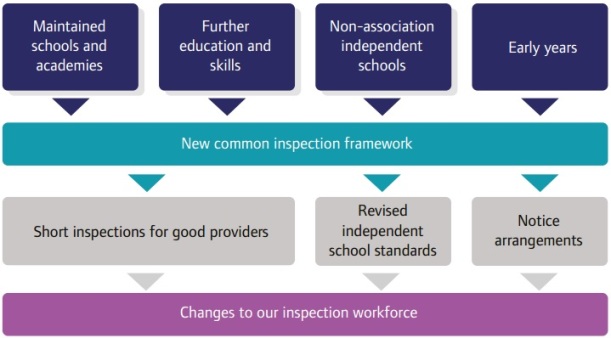Attention deficit hyperactivity disorder (ADHD) is one of the most common childhood disorders and can continue into young adulthood or even longer. Gareth D Morewood examines what SENCOs can learn from recent research.
ADHD may be common, but with symptoms such as ‘difficulty paying attention and controlling behaviour’ it can be a hard condition to diagnose. There are also subtypes of ADHD and a wide range of symptoms. While awareness and understanding of ADHD has improved it continues to be one of the most problematic disorders for pupils, parents and schools to manage appropriately.
Recent research into ADHD services
I was fortunate enough to speak at an ADHD education event as part of the Greater Manchester, Lancashire and South Cumbria Strategic Clinical Networks. The event was to hear about the research that formed the basis of a report called ‘Delivering Effective Services for Children and Young People with ADHD‘ from the ADHD Project Group (CAMHS Clinical Advisory Group). I was there to deliver a workshop alongside two other consultants to help implement recommendations in developing a multi-agency care pathway and in supporting clinical practice.
It was a fascinating event for lots of reasons and, for me, highlighted the significant variance in clinical commissioning across different areas of England.
What the research suggests
The following identifies information and research from the report to help SENCOs manage the way ADHD is perceived and approached in their school.
Information and signposting
The report gives information on age-appropriate diagnosis and interventions (such as medication, programmes to support families, diet, self-help strategies etc.), for example, many children enjoy and benefit from hearing the views and perspectives of other children with ADHD.
Diet
Recent studies suggest that some children with ADHD may respond to dietary interventions or removal of food colourings or polyunsaturated fatty acids supplementation. It is important to be guarded however and more research is required before these become part of routine therapeutic options (NICE, 2013; Gillies et al, 2012; Sonuga-Barke et al, 2013).
Behavioural strategies
Klassen et al (1999) suggest that whilst the size of effective behavioural management interventions are smaller than those reported for pharmacological interventions this may be due to the development of therapeutic packages that are bespoke, and therefore personalised to the specific comorbidity of an individual need.
Parent/carer based interventions
Some parent/carer based interventions demonstrate limited impact on school-aged children (Zwi et al, 2011) but do demonstrate an increased impact on ADHD symptoms for pre-school children. It is therefore important that early-intervention support is given to parents/carers to ensure increased impact. Programmes such as Triple P (Sanders, 2008) and the Incredible Years (Webster-Stratton & Reid, 2010) have been shown to be effective (NICE, 2013). The key aim of these interventions is to promote child-parent interactions and promote positive strategies and confidence.
What to read next from Optimus Education
Sleep strategies
Lack of sleep can exacerbate ADHD symptoms. A recent randomised control trial in Australia has shown promising results with a brief intervention on sleep and 5-12 year olds (Hiscock et al, 2015). A blog post from the NHS also provides useful general advice which may help parents/carers support their children.
School support
It is important that classroom and school-based strategies support the young person directly and minimise the impact of their symptoms on their learning (NICE, 2008, 2013). Access to specialist advice and support is essential. (ADHD specialist nurses, consultants, specialist teacher and support teams etc.)
Medication management
There has been a lot in the news recently about medication and ADHD. For example, a report on the call for more research into the drug Ritalin, and an article from ScienceDaily on how taking drugs for ADHD can lead to bullying. Whilst I see medication as a significant part of the support for young people with ADHD, I agree with recent findings that better designed trials are needed to assess the benefits of methylphenidate. The Voices Report (2015) by ADHD Voices provides excellent advice on common concerns that children with ADHD have about their needs and medication.
So what is important?
During some external work with a large local authority this week I was interested to find out that many SENCo colleagues were not aware of the care pathways for ADHD in their area.
Advice you can take away from this post is:
- find out the routes to support and care pathways for your area
- establish contact with key colleagues (consultants, specialist nurses etc.)
- ensure positive conversations are had with parents/carers about joined-up support and management (strategies, medication etc.)
- provide training for all school staff on positive classroom and school-based strategies.
I must give my thanks to Stockport NHS colleagues with whom I worked on the development of the ADHD Care Pathways and at the event. In particular, Dr Prathiba Chitsabesan (Project Lead & CAMHS Consultant), Dr Alison Jobling (Consultant Paediatrician) & Sally Trowse (ADHD Clinical Nurse Specialist).

